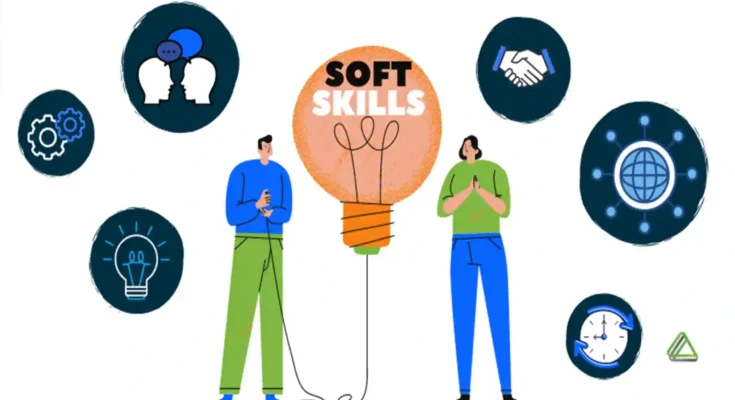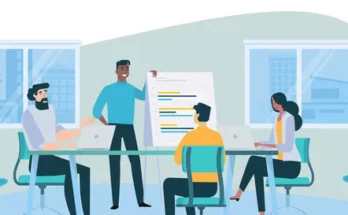Soft skills, often referred to as “people skills” or “interpersonal skills,” are a collection of non-technical abilities that enable individuals to interact effectively with others and navigate various situations successfully. These skills are integral to personal development, career growth, and overall success in both professional and personal realms. In today’s dynamic and interconnected world, the importance of soft skills cannot be overstated.
Soft skills encompass a wide range of capabilities, including communication, emotional intelligence, teamwork, adaptability, problem-solving, and leadership. Unlike hard skills, which are job-specific and technical in nature, soft skills are transferable across different roles, industries, and life situations. They play a pivotal role in shaping how individuals communicate, collaborate, lead, and handle challenges in diverse environments.
Definition of Soft Skills
Soft skills encompass a broad spectrum of competencies that contribute to effective interpersonal interactions and personal effectiveness. These skills are often intangible but have a profound impact on individual and collective success. Examples of soft skills include:
- Communication: The ability to convey ideas clearly, listen actively, and engage in effective dialogue.
- Emotional Intelligence: Understanding and managing one’s emotions, as well as empathizing with others’ perspectives.
- Teamwork: Collaborating effectively with others, sharing responsibilities, and contributing to collective goals.
- Problem-solving: Analyzing issues, generating solutions, and making informed decisions.
- Adaptability: Being flexible and resilient in the face of change, uncertainty, and challenges.
- Leadership: Inspiring and guiding others, fostering a positive team culture, and driving results.
Importance of Soft Skills
Soft skills are crucial for several reasons, including:
- Enhanced Communication: Effective communication is fundamental to building relationships, resolving conflicts, and conveying ideas persuasively.
- Improved Collaboration: Strong teamwork skills promote synergy, innovation, and collective achievement.
- Better Leadership: Effective leaders possess strong soft skills such as empathy, communication, and emotional intelligence, enabling them to inspire and motivate others.
- Adaptability and Resilience: In rapidly changing environments, adaptability and resilience are key to navigating challenges and seizing opportunities.
- Career Advancement: Employers value soft skills alongside technical expertise, as they contribute to workplace harmony, productivity, and success.
Importance of Soft Skills
Soft skills play a crucial role in personal development, career advancement, and overall success. They contribute significantly to how individuals interact with others, handle challenges, and achieve their goals.
Enhancing Career Opportunities
1. Job Interviews and Selection Criteria
Soft skills often determine a candidate’s suitability for a job beyond technical qualifications. Employers look for candidates with strong communication, problem-solving, and teamwork skills during interviews.
2. Advancement in the Workplace
In the workplace, individuals with excellent soft skills are more likely to be effective leaders, collaborators, and contributors to team success. These skills are particularly valuable in roles that require interaction with clients, stakeholders, and colleagues.
Improving Personal Development
1. Effective Communication in Daily Life
Effective communication is fundamental to personal relationships, conflict resolution, and expressing oneself clearly and persuasively.
2. Building Strong Relationships
Soft skills such as empathy, active listening, and emotional intelligence are key to building trust, understanding others’ perspectives, and fostering meaningful connections.
Courses on Soft Skills
Numerous online platforms offer courses specifically designed to enhance soft skills and empower individuals to excel in their personal and professional lives. Here are some recommended courses from reputable platforms:
Coursera
- Soft Skills: The 11 Essential Career Soft Skills by TJ Walker – This course covers essential soft skills such as communication, leadership, teamwork, and emotional intelligence.
- Communication Strategies for a Virtual Age by University of Toronto – Focuses on effective communication strategies in the digital age, including virtual meetings, email communication, and online collaboration.
Udemy
- Soft Skills: The Complete Guide to Being the Ultimate Professional by TJ Walker – Comprehensive training on essential soft skills for professional success, including communication, time management, and interpersonal skills.
- Time Management Mastery: Do More, Stress Less by Joeel & Natalie Rivera – A course dedicated to improving time management skills, productivity, and stress management techniques.
LinkedIn Learning
- Developing Your Emotional Intelligence by Gemma Leigh Roberts – Explores strategies for enhancing emotional intelligence, self-awareness, and relationship management in personal and professional contexts.
- Building Your Resilience by Tatiana Kolovou – Focuses on building resilience, managing stress, and adapting to challenges effectively for personal growth and success.
Read Also: 5 Essential Business Skills you Need to Succeed
Conclusion
Soft skills are invaluable assets that empower individuals to navigate complex social and professional landscapes with confidence and success. As the workplace evolves and interpersonal dynamics become increasingly important, investing in developing soft skills can lead to fulfilling careers, meaningful relationships, and personal growth.
“Soft skills get little respect, but will make or break your career.” – Peggy Klaus
By understanding the importance of soft skills and actively honing them through education and practice, individuals can unlock their full potential and thrive in today’s interconnected world.
FAQ (Frequently Asked Questions)
Q1: What are some common soft skills that employers look for?
Employers often seek candidates with strong communication, teamwork, problem-solving, adaptability, and leadership skills. These soft skills are essential for success in diverse roles and industries.
Q2: Can soft skills be learned and improved?
Yes, soft skills can be learned, practiced, and improved over time. Online courses, workshops, mentoring, and real-world experiences are effective ways to develop and enhance soft skills.
Q3: How do soft skills contribute to career advancement?
Soft skills are highly valued in the workplace as they enable individuals to collaborate effectively, communicate persuasively, lead teams, and adapt to changing environments. These skills are often the key differentiators in career progression and leadership roles.
Q4: Are soft skills more important than hard skills?
Soft skills and hard skills complement each other and are both valuable in different contexts. While hard skills are necessary for technical tasks, soft skills are critical for interpersonal interactions, teamwork, and overall effectiveness in diverse environments.




